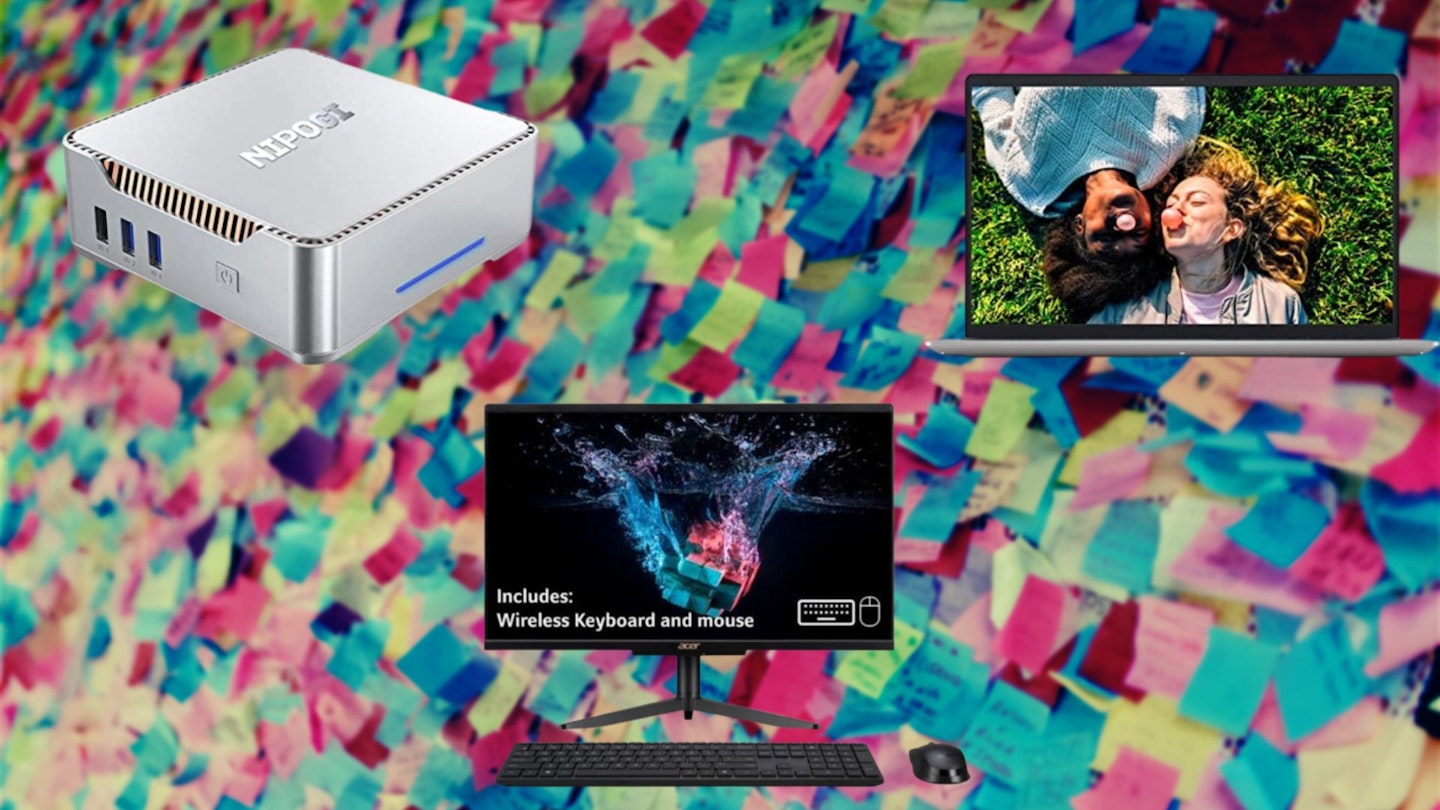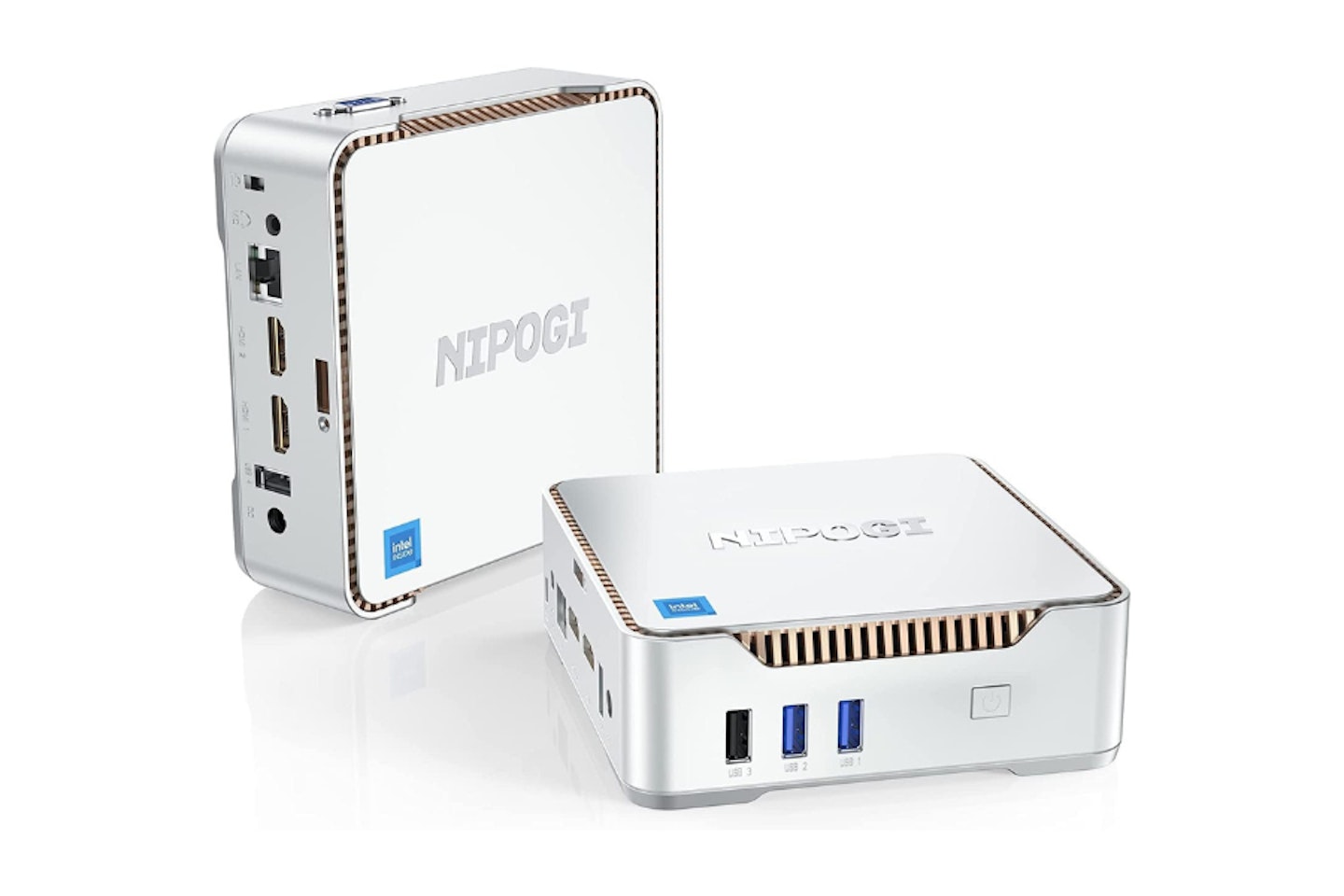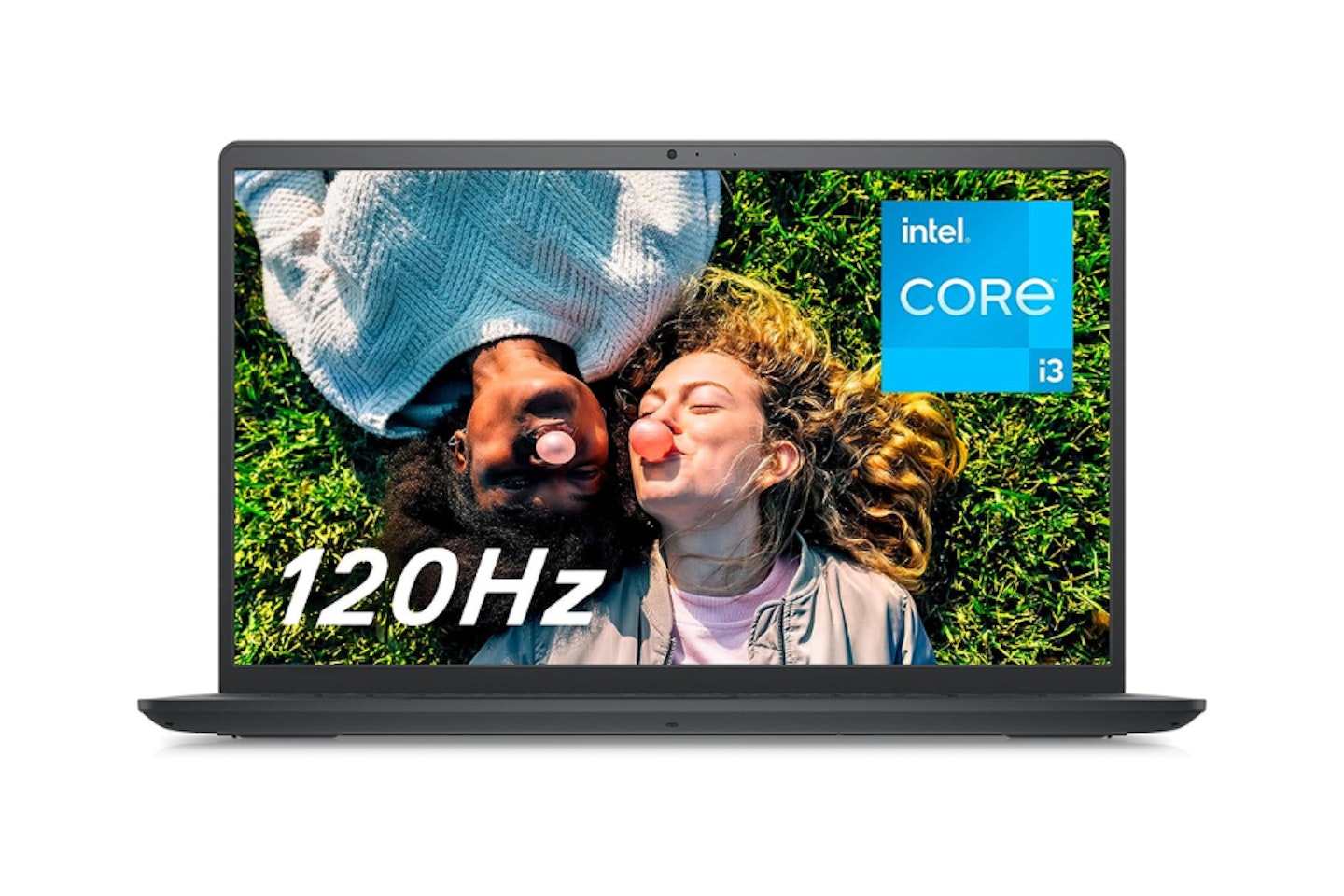The recent surge of home working, freelancers and people wanting to start their own businesses means that more and more people need quality PCs, especially office PCs. Ones with the ability to smoothly run web browsers for research and essential office programs such as Microsoft Excel, so you can still work from home without missing any key features.
But looking for the best office PC can be a nightmare; it can be difficult to not overcompensate and spend too much money on a powerful PC you don’t need. On the other hand, you could go to the opposite end of the spectrum and get one that’s not powerful enough for the tasks you require it to do.
The best office PCs at a glance:
• Best budget office PC: HP 14s-fq0059na 14in AMD 4GB - View at Argos
• Best office mini PC: NiPoGi Mini PC, 12GB DDR4 - View at Amazon
• Best office laptop: Dell Inspiron 3511 15.6" FHD Laptop, Intel Core i3-1005G1 - View at Amazon
Worry not, we have shortlisted the best office PCs for every occasion. We have selected a mix of desktops, laptops and mini PCs for all office tasks. All you have to decide is which is best for you.
The best office PCs:
Best budget office PC
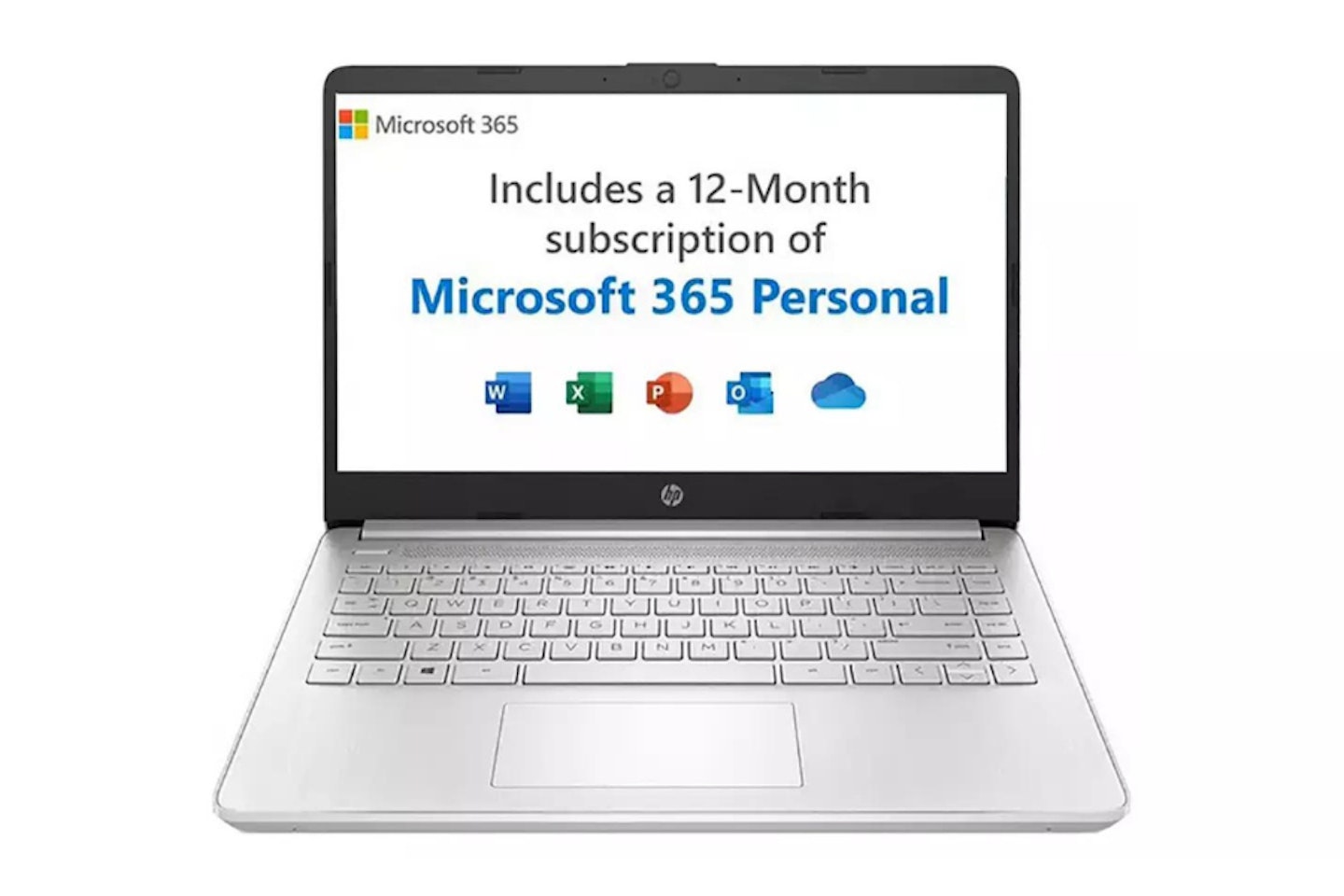
www.argos.co.uk
HP 14s-fq0059na is one of the best office PCs if you are on a budget or just need a simple laptop when travelling. It must be noted that it has small storage space, only clocking in at 64GB, but this can be increased with an external hard drive or USB stick.
In terms of power, it has 4GB of RAM and an AMD - known for its prowess in the CPU market – processor with integrated graphics, so don’t worry, this laptop is still up for all sorts of office work on spreadsheets and Word documents.
Pros
- Cheap price
- Still plenty of connectivity options
Cons
- Very low storage space
| Screen | 14" |
| CPU | AMD - 3020e processor with integrated graphics |
| RAM | 4GB RRD4 |
| Storage | 64GB eMMC storage |
- Customer review: "I bought this a few weeks ago specifically for use when attending meetings that are face-to-face. It is more than adequate, really nice, and it came with one year of Microsoft 365 included."
Best office mini PC
If you are looking for a PC that is more portable than a laptop and you have a screen set up somewhere else, try this NiPoGi mini PC. Its tiny size means it can be easily stored in a rucksack for transferring anywhere you need to go. You will still, of course, need the standard accessories –mouse, keyboard, monitor- but if you need more space or are a hybrid worker, then this is one of the best office PCs for portability.
Its specs will easily support any office software, and despite its small size, it has a range of connectivity such as USB, HDMI and VGA so there's still the ability to use multiple displays and external storage options.
All of this comes at a really good price.
Pros
- Plenty of ports despite the size
- Low price point for decent specs
Cons
- Size limits the ability to upgrade storage
| Screen | 10" |
| CPU | Ιntel Celeron J4125 Processor |
| RAM | 12 GB |
| Storage | 256 GB |
- Customer review: "I was surprised when I took it out of the box its so small in size but a lot faster then my old desk top. Its going to take time for me to get use to windows 11, but this mini computer is working faster then the old computer. Well worth the money even for a old pensioner like myself."
Best all-in-one office PC
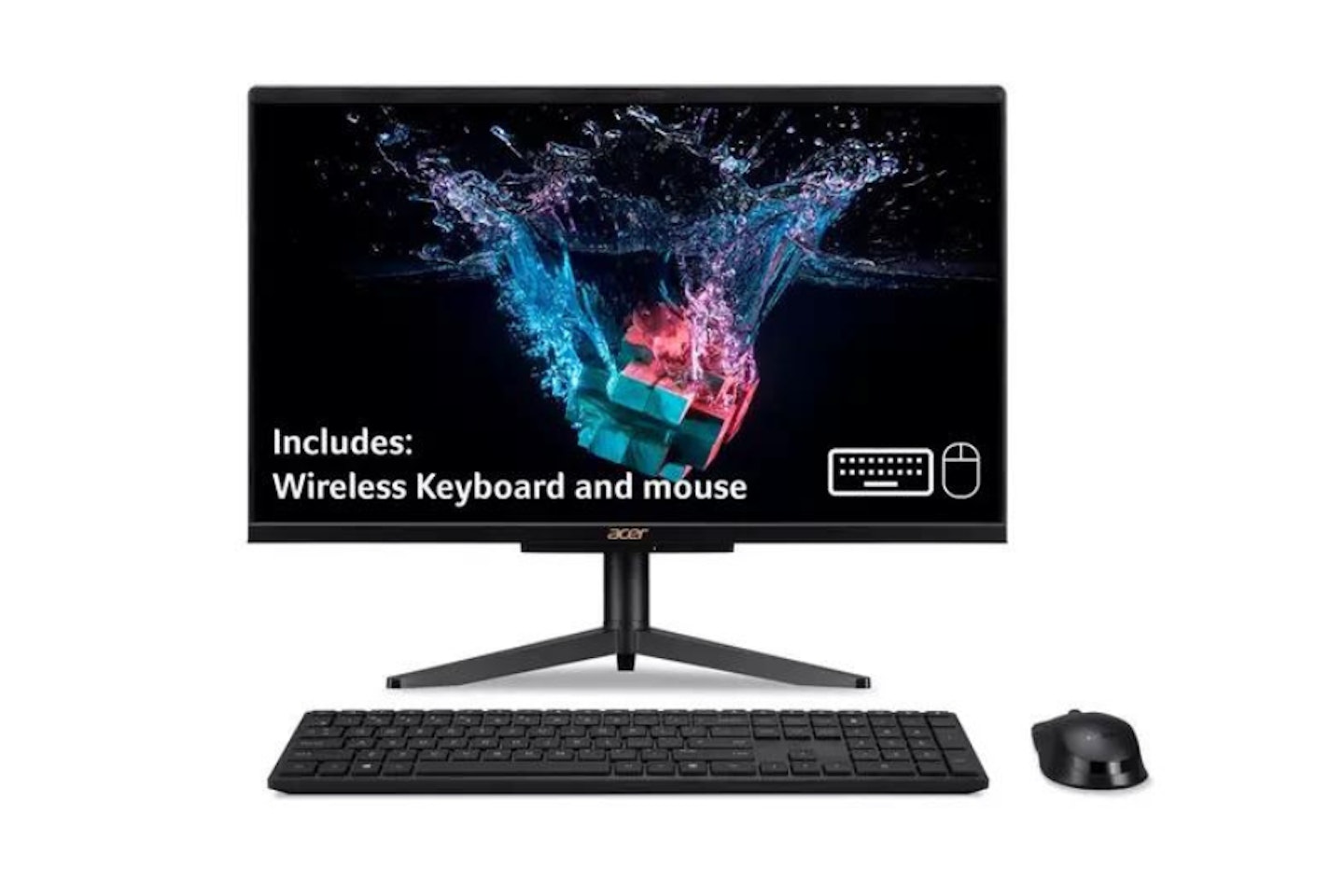
www.currys.co.uk
Space is very important in a home office environment, if we don’t have enough of it, we tend to go a little mad. The ACER Aspire C22 is an all-in-one desktop PC that will save you space and prevent that all-too-familiar headache of cable management.
The power of this PC makes it perfect for office tasks such as working on documents, working on spreadsheets or researching topics online. A 21.5-inch screen makes working easier and a lot more comfortable, thanks to the large screen real estate, anti-glare and HD resolution. It uses a 256GB SSD, so all your programs will load faster, and your files will transfer more quicker.
As a bonus, it comes with a wireless keyboard and mouse, so you don’t need to spend extra money on peripherals.
Pros
- Large screen
- All in one nature
Cons
- Low storage space
| Screen | 21.5" |
| CPU | Intel Pentium Silver N6005 Processor |
| RAM | 8GB DDR4 (Upgradable to 16 GB) |
| Storage | 256 GB SSD |
- Customer review: "Fast pc with good quality screen. Very pleased with the remote keyboard and mouse included - very useful. Easy to set up."
Best office laptop
Sometimes you need easy portability for quick turn-on-and-go access, sometimes you need a laptop. The Dell Inspiron 3511 offers convenient portability while still maintaining the power you would expect from an office PC.
Equipped with 8GB of RAM and an HD screen, you can work in confidence knowing that everything is running smoothly. Its HDMI will allow you to connect to a second monitor for a more ergonomic experience or allow you to present your brilliant presentation on a big screen.
Pros
- Portability
- HD screen
Cons
- Low storage
| Screen | 15.6" |
| CPU | Intel Core i3-1115G4 |
| RAM | 8 GB |
| Storage | 128 GB |
- Customer review: "This laptop is ideal for what I use a laptop for, namely work emails, documents, spreadsheets etc. It charges fast as well. Nice and slim design for porting it around."
Best midrange office PC
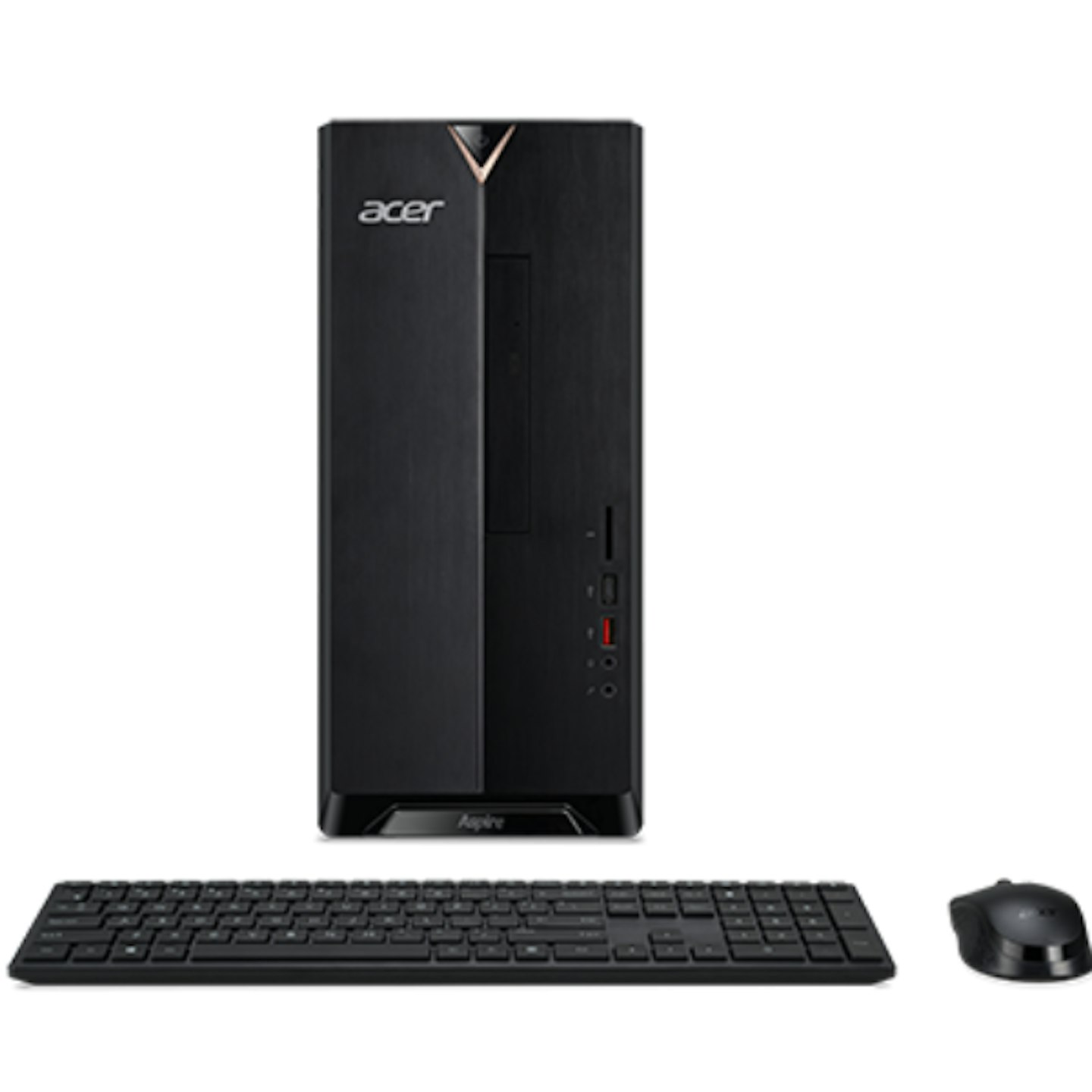
store.acer.com
If you need something with a bit more storage built in as well as something upgradable in the future, consider the ACER Aspire XC-1760 Desktop PC. With 1TB of SSD space, there will be plenty of storage for all of your work. 16GB RAM and an I5 processor run applications quickly and efficiently.
Connectivity wise there are a nice amount of USB ports for the included wireless keyboard and wireless mouse, an SD card reader and two HDMI ports, so two monitors are possible.
Pros
- Large Storage space
- Fast CPU
Cons
- Cable management could get busy
| Screen | Unspecified |
| CPU | i5-12400 processor Hexa-core 2.50 GHz |
| RAM | 16 GB |
| Storage | 1 TB SSD |
- Customer review: "Great disk speed (copying GBs of files only takes a moment). Decent performance on all everyday computing tasks."
Frequently asked questions
Why are laptops more expensive despite having the same or worse specs?
Because laptops are smaller than a typical desktop tower, the same parts that you see in a desktop have to be made smaller too. This runs the cost of the component up adding to the overall cost of the device.
What else will my PC be able to run?
It will depend on the program. All programs will have specs listed somewhere on their respective websites which can be easily searched for.
For example, searching "Microsoft Office specs" can find the recommended specs for Office. The same principle can be applied to other programs too.
Terminology
CPU
A Central Processing Unit, or CPU, processes and executes instructions. Think of this as the brain of the PC. Processors often consist of multiple cores. A higher number of cores increases the amount and intensity of tasks that the CPU is able to carry out.
RAM
Random Access Memory, or RAM, is a component that temporarily holds information for quick access by the CPU. The information will be related to programs and services that are in use. The more RAM available, the more quick-access information there is available to the CPU, thereby improving computer performance.
While 8GB is ideal for speed 4GB is enough for office tasks.
SSD
An SSD or solid-state drive is another option for storage. Unlike its counterpart, an SSD has no moving parts. Much like an SD card they use flash memory to store and retrieve data. Effectively they are faster hard drives that will transfer, load and store data faster. They are also more reliable too.
Keep in mind that an SSD will offer less storage and cost more than an HDD but it's well worth it and some computers come with both often opting to install the operating software on it for a faster boot time.
If you choose to have an SSD you may want to consider having some sort of additional storage as sizes are typically smaller. We also recommend that you install your programs to the SSD for improved performance.
eMMC
Embedded MultiMediaCards, or eMMCs, are not too different from SD cards or SSDs. They are not as fast as SSDs and are typically soldered to a PC's motherboard. They will get the job done but, as we said, are slower. They typically come in the lower end of budget PCs usually in laptops to save on the limited space for the components inside them.
Adding more storage
You can add more storage to the computer (though you will have more trouble with this if it’s a laptop or Apple computer) by opening it and attaching an HDD or SSD to the motherboard
If you're too worried about breaking something in the computer, you also use portable hard drives with USB connectivity that – much like a memory stick- will simply plug into a USB port on the computer.
In fact, if you're going to be showing your work or moving about with it we recommend one as they are a lot more reliable to work from than a memory stick.
You can get both HDD and SSD external drives.
Ryan Arnold is a tech specialist and Commercial Content Writer working across What’s The Best and Yours. He’s also an experienced video editor with a love for film and gaming.
Subscribe to the What’s The Best Newsletter to keep up to date with more of the latest reviews and recommendations from the rest of the What’s The Best team.
